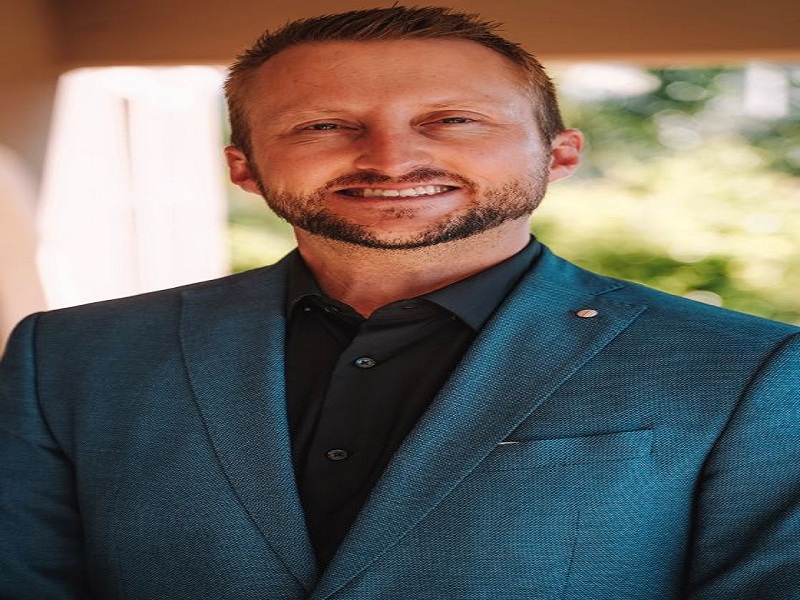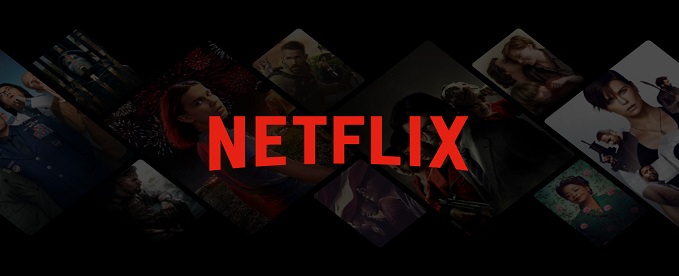Broadcasting
5 Tried and Tested Ways to Keep Employees Engaged

By Andrew Bourne, Regional Manager – Africa, Zoho Corp.
Employee engagement, when done right, nurtures long-term relationships and contributes to an organisation’s sustainability. Engaged employees commit themselves to their employer’s goals, find satisfaction and meaning in the work they do, and have the potential to enhance business profitability. Here are five simple yet effective ways to keep your workforce engaged:

Andrew Bourne, Regional Manager – Africa, Zoho Corp
Uphold two-way communication
Two-way communication keeps employees informed about work-related developments and gives them a platform to offer their suggestions and feedback. A lack of communication can lead to information silos and in some cases, may also lead to employees perceiving it as mushroom management. To break silos and establish two-way communication, a flat organisational structure is a good place to start. Next, consider using different communication channels that allow free flow of information for all parties at various levels, i.e., between peers, managers, and the organisation. Apart from face-to-face and emails, introduce internal chat mediums, social intranet, and frequent business outlook updates. For instance, organizations can make use of virtual town hall meetings to enable their employees to communicate with their top leaders.
Facilitate employee development
For employees to work dedicatedly towards company goals, the first show of commitment has to always be the employer’s. An employer has to be ready to make long-term investments in human capital development and provide opportunities for employees to expand their skill sets or be redeployed to new roles that fit their interests. Moreover, for individuals to learn and perfect their work, it takes time. So there needs to be a culture of acceptance that encourages employees to learn from their mistakes without fear of being criticised. Similarly, experienced employees can be brought on board to mentor new employees. They can help interns understand what it takes to excel in their new roles and overcome work challenges.
Empower employees with trust
A culture built on trust empowers workers to become the best version of their work selves. Trust provides the mental space that every employee needs to hone their capabilities and deliver to their full potential. On the other hand, micromanagement introduces work fatigue and even the most spirited employees can lose interest when constantly monitored and badgered for updates. Today, we continue to hear about how more and more companies are deploying digital surveillance and key logging software to make sure that their remote workers put in the necessary hours while working from home. These are just different forms of micromanagement and practices like these will not be sustainable in the long run. They can affect workplace dynamics and destroy trust relationships, the effects of which will reflect eventually in the attrition rate.
Put the human back into human resources
Trying times like the present call for employee engagement approaches that prioritise individual well-being above all else. During such unprecedented circumstances, it’s critical to allow employees the space to adapt to the new normal and regain balance between their professional and personal lives. Flexible work arrangements that allow employees to develop their own work schedules will come in useful. Also, acknowledge and act on concerns that hold back employees from doing their work. For instance, poor ergonomics while working from home can increase stress and affect productivity. A one-time allowance towards enabling employees to set-up a dedicated home office can help solve this.
To better help employees who are battling anxiety and mental health issues, consider bringing a psychologist on-board to enable them to navigate their overwhelming emotions under guidance. Wellness webinars can be organized to help employees maintain a healthier lifestyle amidst the lockdown and stay-at-home orders.
Align organisational values with workplace practices
Employees respect and gradually become loyal to an employer who stands for what they believe in and integrates the same within workplace practices. An organisation’s key decisions must always be guided by its core values. At Zoho, we believe the cloud will power entire businesses and true to that vision, all our business operations including employee collaboration run only on Zoho applications to date. Another value close to our heart is the philosophy of transnational localism and as part of it, we have established more than 30 satellite offices in rural locations across various nations to help our employees stay close to their roots.
Strong employee engagement programs are core to sustainable human capital management. They determine an organisation’s capability to attract the right talent, build loyalty, and promote development. Moreover, amid testing times like the ongoing pandemic, continued employee engagement practices become all the more important for an organisation to assure employees of its investment towards the well-being of its workforce.
Broadcasting
Burna Boy, Other Nigerian Artists Pocket $38m from Spotify in 2024

Spotify, the Swedish audio streaming and media service provider, paid over $38 million in royalties last year to Nigerian artists who are riding on the wave growing interest in music from Nigeria and African continent.

Elsewhere, South African performers reached $21 million, up 54 per cent year- on-year.
In total the two biggest African markets got around $59 million last year.
Meanwhile, the Swedish company paid out some $10 billion in royalties worldwide in 2024.
And while Africa represents only a small part of its offering, interest in African artists has ballooned, buoyed in part by internationally recognised acts like South African singer Tyla and Nigeria’s Burna Boy.
Around 250 million user-created playlists now feature at least one Nigerian artist, and 220 million contain a South African, the company said on Thursday.
“What we’re seeing is an excellent evolution around more and more mid-tier or up-and-coming artists making a living,” said Jocelyne Muhutu-Remy, Spotify’s managing director for Sub-Saharan Africa.
Much of that came from outside their home markets.
Nigerian artists have seen a 49% increase in export growth over the past three years, while South Africa saw export growth of 104%.
The number of Nigerian artists earning 10 million Naira, meanwhile, doubled year-on-year and has tripled since 2022.
In South Africa, the number of those earning between 100,000 and 500,000 rand has doubled over the past three years.
Broadcasting
Glo-sponsored African Voices Changemakers Celebrates Nathaniel Bassey, Mercy Chinwo

CNN International’s magazine programme, African Voices Changemakers, sponsored by Globacom, will this week celebrate two of Africa’s biggest gospel music stars, Nathaniel Bassey and Mercy Chinwo.

The 30-minute programme will showcase the gospel stars who are expected to bring their unique gospel vibes to the show.
Nathaniel Bassey, a Nigerian singer, trumpeter, and gospel songwriter, has gained massive popularity with his songs like “Yahweh Sabaoth”, “Ebenezer”, and “Tobechukwu”.
Born on August 27, 1981, Bassey studied International Relations and Politics at the University of Lagos and later Music at Middlesex University Summer School in the UK., Bassey’s music has inspired countless fans around the world.
The second guest, Mercy Chinwo, is a Nigerian gospel singer, actress, and songwriter who began her music career at age six. She signed with EeZee Conceptz in 2017 and released her first single “Excess Love” in 2018.
Chinwo has won several awards, including the Gospel Artiste of the year at the AFRIMMA Awards in 2020. With her powerful voice and captivating stage presence, Chinwo has made a significant impact on the gospel music scene across the globe.
African Voices Changemakers will air on Saturday at 8:30 a.m., with repeats on the same day at noon, and on Sunday at 4:30 a.m. and 2 p.m. The show will also air on Monday at 4 a.m. The same broadcast schedule will be repeated next week.
Broadcasting
Netflix Expands Language Options on TV to Capture Global Viewers

Netflix has expanded its language options for television viewers, allowing users to select from the full list of available subtitles and dubbing languages for any title.

This update aims to make Netflix’s global catalogue more accessible, especially as nearly a third of its viewership comes from non-English language shows.
Previously, TV users could only choose from a limited selection of languages based on their location and settings.
Now, they can access the complete range of available languages for any title, similar to the flexibility already offered on mobile devices and web browsers.
For instance, a user can watch an English title like “Bridgerton” with Spanish dubbing and Korean subtitles, or opt for Japanese dubbing with Portuguese subtitles.
Netflix offers subtitles in 33 languages and audio dubbing in 36 languages across its catalogue, though the exact number of available languages may vary by title. This change responds to numerous user requests for more language options on TV platforms.
This move reflects Netflix’s commitment to enhancing accessibility and catering to its diverse global audience by providing more inclusive viewing experiences.

 General News2 days ago
General News2 days agoAirbnb Community Fund Donates ₦13 Billion to Nonprofits Worldwide

 General News2 days ago
General News2 days agoNigerian Military Makes History with Africa’s First Attack Drones, Bombs

 News2 days ago
News2 days agoShell, Renaissance Face Legal Action over SPDC Licence Transfer

 Telecom2 days ago
Telecom2 days agoNigeria Heads Anglophone Data Protection Committee

 E-Business2 days ago
E-Business2 days agoKike, Nigerian Tech Firm Launches ‘Kike AI’ for Kitchen Innovation

 E-Financial2 days ago
E-Financial2 days agoSterling Bank Makes Online Transfer Charges Free of Charge

 News2 days ago
News2 days agoWorld Bank Approves $1.08Bn Loan for Nigeria

 Telecom2 days ago
Telecom2 days agoHow MIP Is Making a Difference in The Media Landscape























